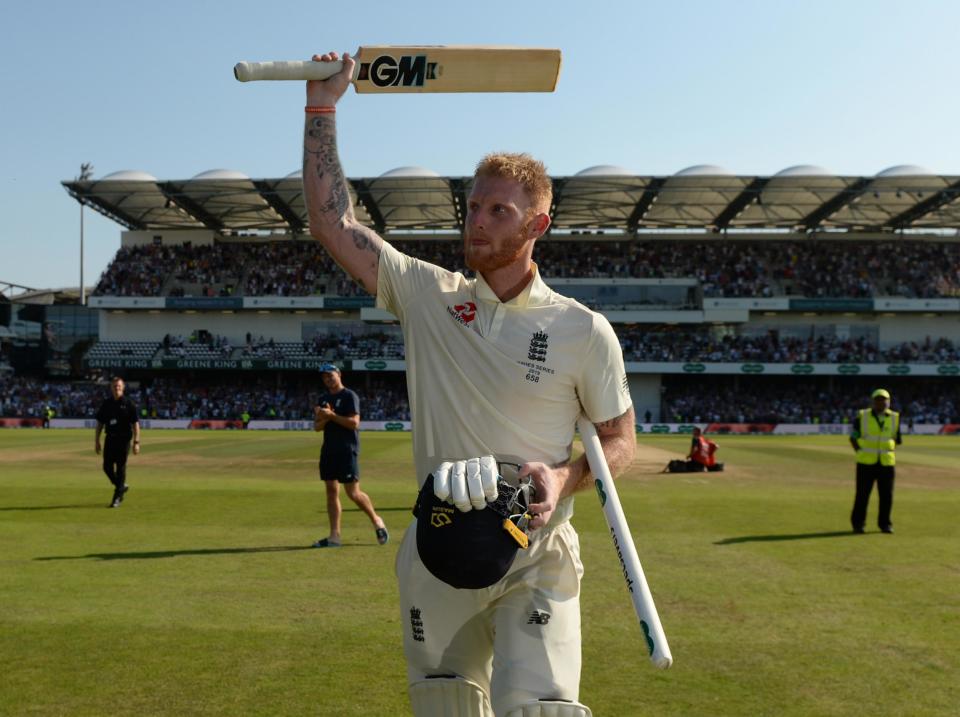Ben Stokes deserves our sympathy, but The Sun had a perfect right to run a risky story

It was hard not to feel sympathy for Ben Stokes. How could we not? The Sun, with its characteristically stark headline, had apparently chosen to resurface for the first time in over 30 years, the murder of two young children who, had it not been for a tragic chain of events, would have been the England cricketer’s half siblings.
As you scrolled through Twitter and read Stokes’ reaction to the story, you might have thanked your lucky stars you weren’t him, or indeed, any person who might find themselves the subject of this kind of media attention.
The piece has been denounced by campaign group Hacked Off as a “disgrace”, and condemned by media commentators as a “deplorable” ploy to sell papers. We were told that it was “unspeakably cruel” and bore the “fingerprints of the criminal News of the World phone hackers”. “Leveson 2 now!” was the battle cry.
That Ben Stokes’ family is deserving of our condolences is not in dispute. But let’s be clear about the content The Sun chose to publish. It was, ultimately, a report of a crime, which had existed as a matter of public record since 1988. Given the nature of the crime itself, the details would have been deeply distressing for Stokes’ family to re-read. However, the legitimate right of the media to report on matters of public record, must be balanced against the rights of those who may be impacted by such reporting.
The fact of a person’s death is not private. It cannot be when a death can impact upon entire communities. It would have been inevitable that the murder of Tracey, 8, and Andrew, 4, at the hands of their father would have sent shock waves through New Zealand those 30 years ago.
Part of the criticism voiced against The Sun was the fact that it had decided to report on an event which took place so long ago, indeed this is something which appears to have caused the Stokes family particular distress. However, the passage of time does not grant confidentiality to a crime. If it did, it would unduly restrict the right of the media to report on public legal proceedings. A crime, and its impact, exists as a matter of public record in perpetuity.
But let’s think for a moment about the practical implications of imposing a formal time limit on this kind of reporting. The Editors’ Code of Practice – the set of standards The Sun is obliged to follow – makes clear that in cases involving personal grief or shock, publication must be handled sensitively, but that this should not restrict the right to report legal proceedings.
It cannot be the job of a regulator to prescribe an arbitrary time limit upon the reporting of matters of public record. Who decides at what point the publication of information heard during the course of legal proceedings becomes “insensitive”? Is it 5, 10, or 15 years later? Does the cutoff point differ depending on the circumstances of a particular death?
Read more
Stokes attacks The Sun over ‘despicable’ story about his family
Such arbitrary limits on the media’s right to report on matters of public record do not just pose a threat to the accurate reporting of historic crime. Contemporaneous court reporting could also be affected; these articles similarly provoke outrage, from those who believe that details of their crimes, or the crimes of their family, should remain private. A determination of whether publication has been handled sensitively cannot be made with reference to the reaction it provokes. The line would be impossible to draw.
And what about Jacqui, the daughter of the man found responsible for the children’s murder; her half siblings, too. Jacqui, who had chosen to speak publicly to The Sun for the first time about the impact the crime had made on her. She also has a right to speak about the case, as a person clearly directly affected by it, and be given a platform to do so. It surely would not be reasonable for Jacqui to be prevented from speaking
Reporting on the details of a tragic death will, of course, always provoke an emotional reaction from those personally affected. On some occasions, as in this case, it ignites a debate over whether the media has “gone too far”. You may agree with that assertion, but the potential for miscalculation by editors is the price we pay for our media having the right to report.
http://players.brightcove.net/624246174001/default_default/index.html?videoId=5837728067001
Support free-thinking journalism and attend Independent events
An editorial in The Guardian this week walked on similar ground as it speculated that David Cameron had only suffered “privileged pain” over the death of his son. The newspaper acknowledged the miscalculation and apologised.
In this environment, knee-jerk reactions from media commentators on Twitter are unhelpful. A proper balancing exercise must be undertaken between the respective rights which are at play in cases such as the Stokes article.
The Sun was entitled to try and balance its rights and responsibilities against the rights of Ben Stokes’ family. Within that framework, the editors of The Sun would have made a decision to publish what they considered to be a subject of interest for their readership. They will have been aware that their decision might prompt negative reaction from readers or commercial partners who might consider the coverage to be beyond the pale. This was a risk that they were entitled to take.

 Yahoo News
Yahoo News 
